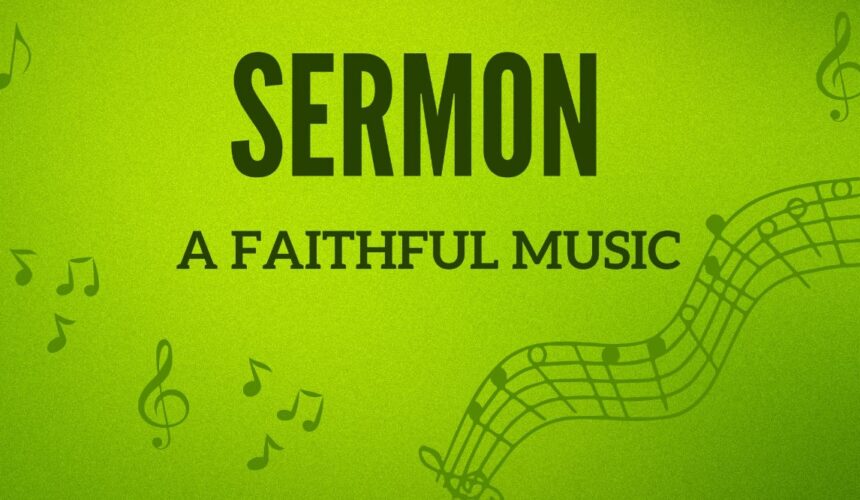A Faithful Music
University Park United Methodist Church
17th Sunday in Ordinary Time
September 15, 2024
Scripture: Psalm 98
About 40 years ago, I graduated from college with a freshly minted music degree. And in the time honored tradition of music and liberal arts majors, I came back home and moved in with my parents, not having any clue what my next move was going to be. I know this may shock you, but back in those days, people were not beating down doors to hire music majors, you know, like they are today. It was a much less enlightened time than our own.
(That was a joke, in case you’re wondering.)
At the time, I didn’t even consider myself Christian. But I had grown up in church, and the Pastor of the church where I grew up called me one day and asked if I would be willing to lead the music in our upcoming Vacation Bible School. I wasn’t doing a whole lot else except unsuccessfully looking for work, so I said, “sure, I’ll do that.” So she got me a copy of the VBS curriculum, and I learned the music so I could teach it to the children.
I have to say, Bethany Hader Crabbs, our children’s ministry director here at U Park, does a much better job with Vacation Bible School music than I did. And this was kind of old school VBS, back in the 1980s. There was no hip-hop music, no videos, no dance routines to teach the kids. I got each class for maybe 15 minutes a day for like four days, and I taught them these little church songs.
All the children were invited to come to church with their families on the Sunday after Vacation Bible School ended, so they could sing one of their VBS songs in worship. (Talk about a time honored tradition, right?) So when the time came during the service, I got up and invited the children forward to sing.
I’m not quite sure what happened to create the next few minutes. It may have been my lack of planning, or it may have been that nobody else in the Vacation Bible School leadership thought about this, but as the children began to come forward there was nobody there sort of organizing them to bring them up and get them in line and show them where to stand. So instead of walking forward and taking their places, we had like 20 kids just running toward the front of the church in this kind of chaotic scrum, laughing and shouting, arms and legs flying. And at the front of the pack, sprinting up the aisle as hard as he could go, was a little guy named Israel. Now Israel was maybe four or five years old, dark hair, with these bright blue eyes and a huge smile. He’d been there every day in our 15 minutes of music time with all the other kids, learning the songs, and he loved them. Like a lot of kids in our Vacation Bible School here, his mom told me that he would sing the VBS songs all day at home. And he was enthusiastically part of the pack of children running toward me that morning. Israel got about four or five feet away from me and just launched himself into the air. I saw him coming at me and I caught him in midair just as all the other children came running up around me in this chaotic mob, hanging on me and jumping up and down. I didn’t really know what else to do at this point, so I just started singing the VBS song and luckily, all of them joined in loudly and joyfully and of course nowhere even remotely close to being in tune. But we did all finish at roughly the same time, more or less, and the congregation clapped and cheered. I put Israel down, and all the kids went downstairs to children’s church. And there was something about that moment, the children’s joy at sharing music, the sense of belonging that music gave them, the fact that they were singing in worship – and Israel, who seemed to have learned that week that there were grownups in the church who wanted to hear him sing, and who were also ready to catch him when he launched himself into the air. There was a feeling about that moment that got me thinking maybe there was something to this whole church thing after all.
So 8 or 10 years later, I was serving for the first time as a solo Pastor. I was appointed to two little country churches, and in a nearby small town there was a skilled nursing facility. They asked me to come in once a week, Wednesday or Thursday or whatever it was, and lead maybe a half hour of worship for the people who lived there.
Some people in that facility were perfectly cogent but had medical issues that needed constant care. Others were in wheelchairs, hunched over, uncommunicative, unable to speak or respond. But the staff would gather them all into the dining room, where there was an old beat up piano. And we would pass out some tattered song books. And the pianist would start playing “The Old Rugged Cross,” or “Leaning on the Everlasting Arms,” or “When the Roll is Called Up Yonder.” And people who hadn’t talked all day, maybe all week, would lift up their heads and start singing. Or if they couldn’t do that, sometimes they would tap the rhythm of the song on the arms of their chairs. And I can’t explain this, except to say that I knew I was in the presence of God.
Music shapes us. It forms our spiritual lives. It goes deep into our souls, gets right past our mechanisms of thought and analysis and all the ways we dissect experience. Over the past 20 centuries or more, theologians and sometimes, sadly, church authorities with more power than they ought to have, have paid a whole lot of attention to whether we speak the correct words, make the correct statements, use the correct doctrinal formulations about God and Christian faith. But something those children in Vacation Bible School and the residents of that care facility taught me all those years ago is that the songs we sing and the music we hear are probably a lot more important than the words we say. Music brings us into the faith as children, it can bring us close to God throughout our lives, and in the end, music is one way God accompanies us on our final journey home.
The authors of scripture knew this. I think it’s worth noting that the oldest piece of writing in the entire Bible, the lines that some scholars believe date back to before any of the rest of the book was composed, are not history or myth or doctrine or theological argumentation: they are a song. It’s often called “the Song of Miriam.” You might remember the story: after the Israelites escaped from slavery and walked dry shod through the Red Sea, after the waters crashed in on Pharoah’s army chasing them down, Miriam, the sister of Moses and Aaron, took a tambourine and led all the women of Israel in dancing and singing together, “Sing to the Lord, who has triumphed gloriously. Horse and rider have been thrown into the sea.”
I think it’s important, it’s significant, that this is the only place in scripture where Miriam is called a prophet. In the Biblical understanding of that word, a “prophet” is not somebody who predicts the future. A prophet is the one who conveys God’s message, who speaks God’s word at a crucial moment. And in that crucial moment, when a group of escaped slaves were becoming one people, the word of God is a song: reminding them of who God is and what God has done and helping them realize they are the people of that God.
I think that’s what good church music does, or at least that’s one thing it does. It reminds us that not just here in church, but in the rest of the world too, we are at home because we are the people of that God, the beloved of a God who loves all of creation and calls us to love it too. That’s prophetic work. That’s spiritually formative and transformative work.
Today we celebrate 35 years of that kind of prophetic work done by our music director, JoAnn Gudvangen-Brown. When I first proposed this service months ago, JoAnn didn’t want to do it. Partly, that’s because she never wants to draw attention to herself. And partly, it’s because she knows, as Renae knows, as Christina, the music leader for our 9:00 worship knows, as all good church musicians and choirs know, sacred music is not to draw attention to the musician, but to point beyond the musician to God.
Ultimately, that’s not just what church musicians do. I think that’s what churches are called do. I think it’s what all Christians are called to do: point beyond ourselves to God. And I don’t know any better way to do that than through good music, which always seems to have a way of making this world, this moment, holy and meaningful and richer than we realized: reminding us that this world is God’s world; that this world is where God is to be found in our relationships with our children, with our elders, with our community of faith and with all of God’s beautiful creation.


